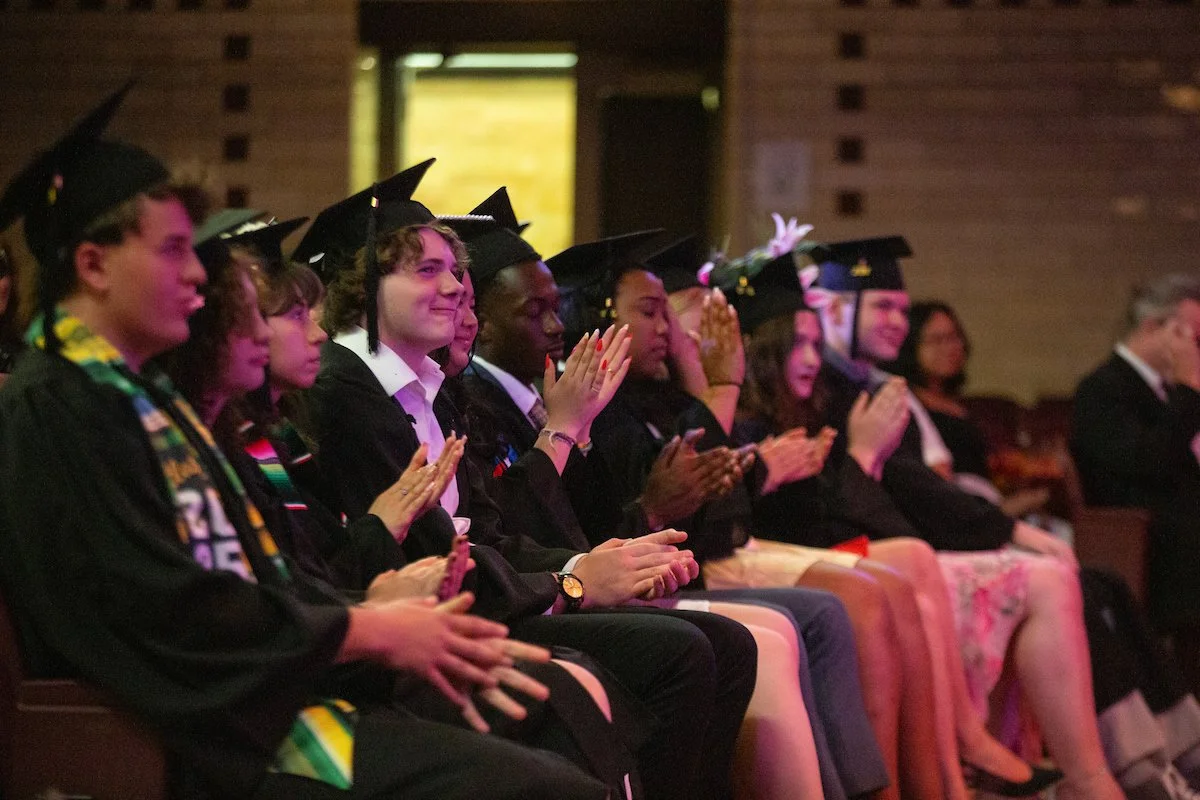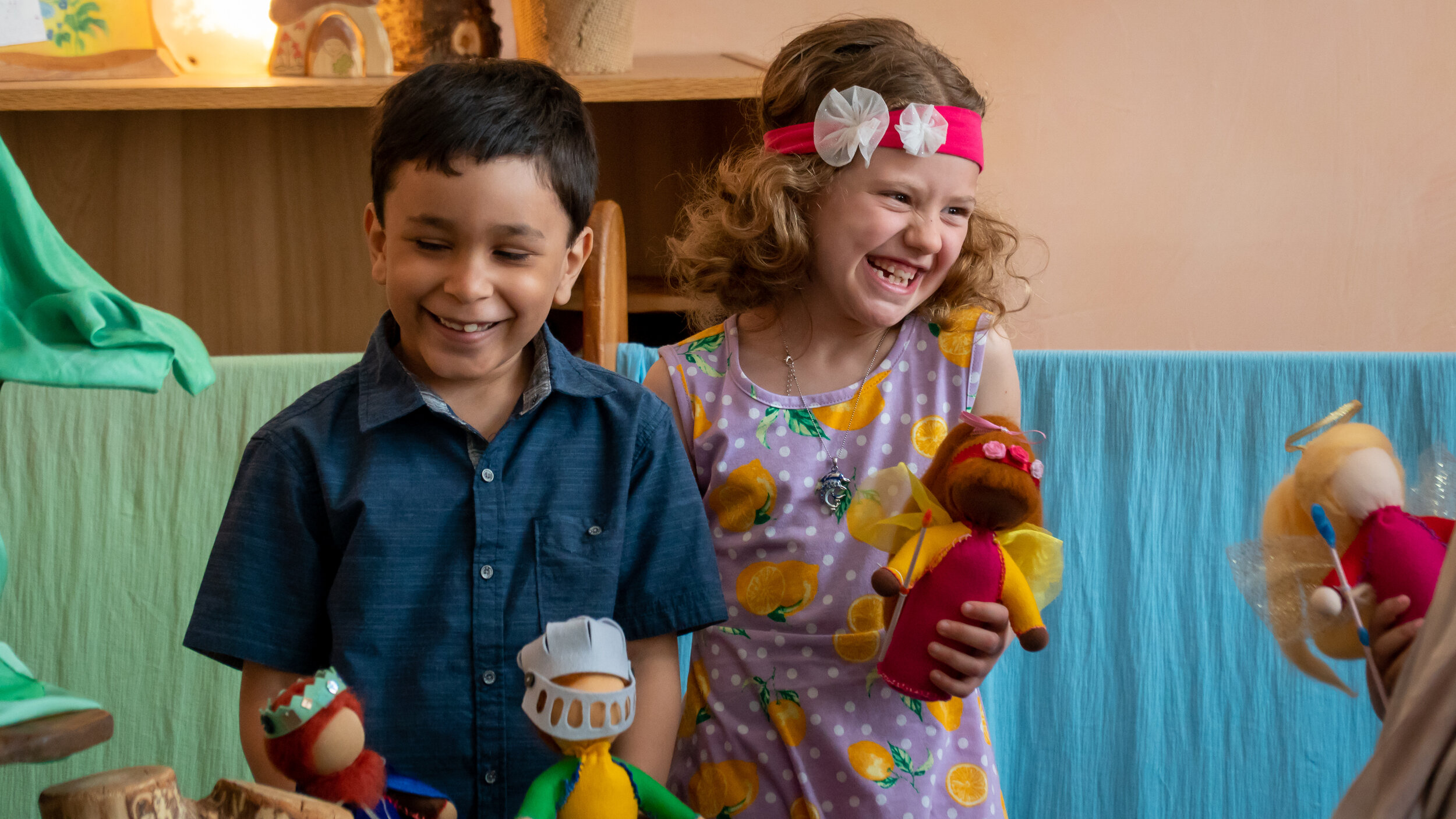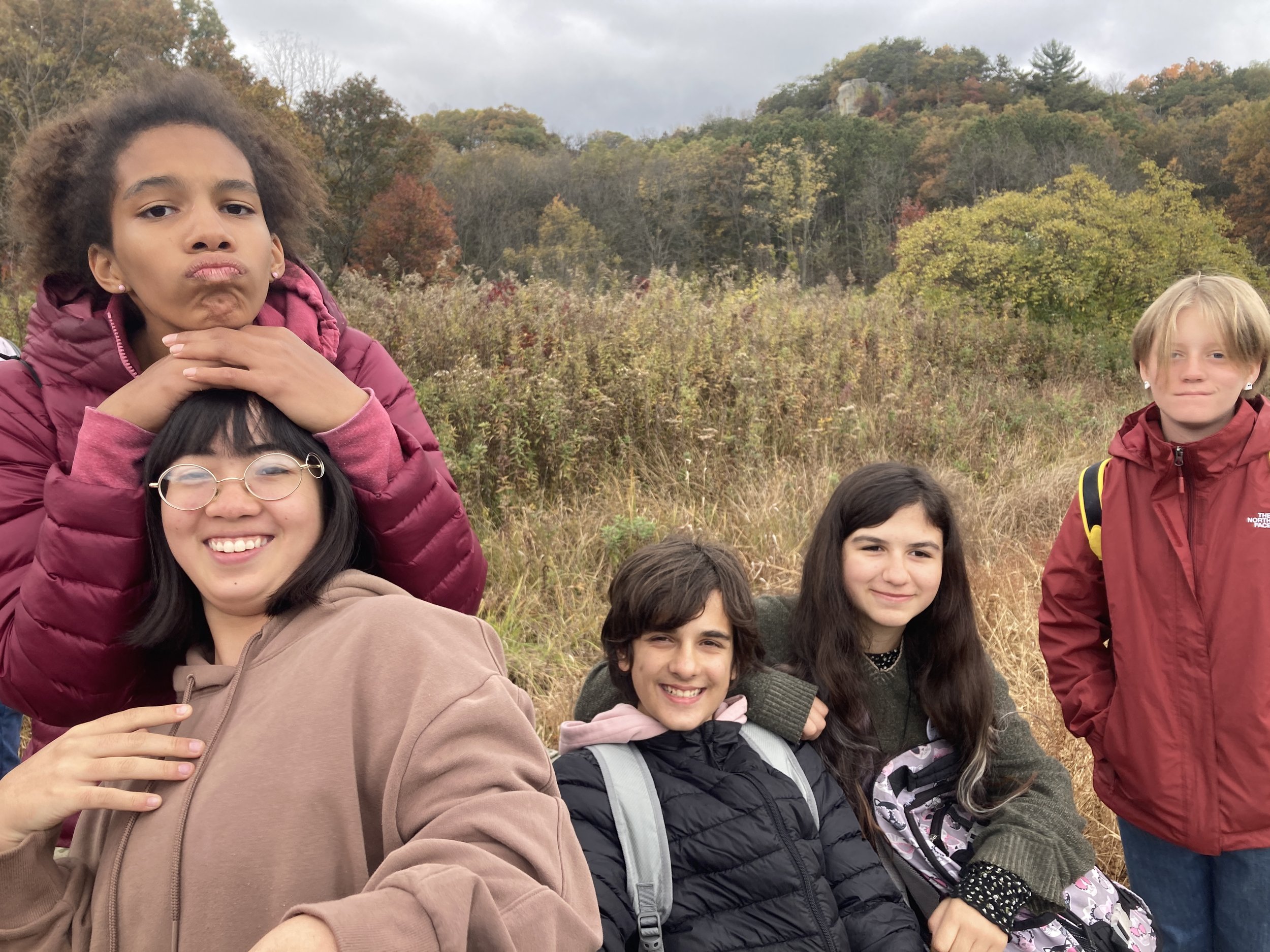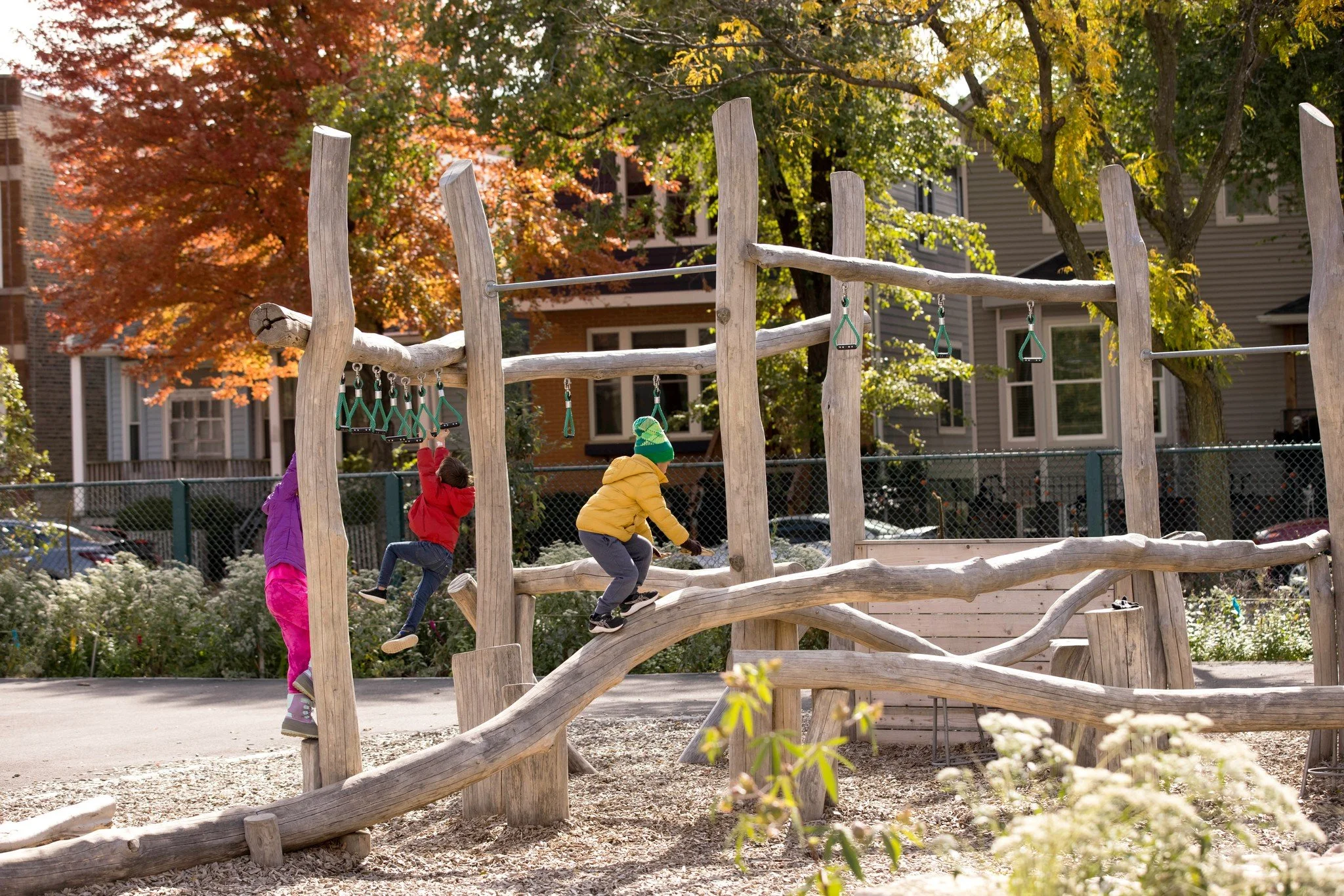
who we are
mission statement
The Chicago Waldorf School offers a transformative education in an inclusive environment that challenges students while protecting their well-being. Equipped with self-knowledge, experience, and a love for learning, our students meet the world ready to contribute and succeed.

core values
We weave academic and artistic excellence with social engagement and moral awareness into an integrated whole. We work with educational principles established by Rudolf Steiner to encourage imagination, flexibility in thinking and a love of learning.
Excellence
We work in respect and reverence for the gifts and destinies of our students. We encourage in them the same respect and reverence for the wonders of the world, for their own humanity, and for the human dignity of others.
Respect & Reverence
We protect the experience of childhood and appropriately introduce challenge, rigor and risk as students grow. We encourage the development of self-direction in our students and support achievement and wellness.
Wholeness
We respect the dignity of each person and aspire to be a diverse, healthy, inclusive, and collaborative community. Waldorf education embodies a living set of principles, which grow to be relevant to our time and place, to inspire our students to reach out to the world with engaged inquiry, service, and a vision for justice.
Belonging
Chicago Waldorf School graduates go on to pursue their dreams.
Whether they’re designing sports stadiums, founding dance companies, designing couture fashion, starting non-profit animal shelters, studying extra-planetary space travel, making independent films, or becoming educators themselves, Waldorf students bring their senses of curiosity, creativity, and courage wherever they go. After years of challenging themselves, experimenting academically and artistically, and growing into their identity, they are truly ready for anything.

over 50 years of Waldorf education in Chicago
Conceived around a kitchen table by a group of Chicago parents and educators, the Chicago Waldorf School opened in 1974 with a kindergarten class in a rented classroom at the Church of the Three Crosses in Lincoln Park. On the first day, there were five children and one teacher. Three years later, in 1977, a 1st Grade was added, and the school began to grow at a rate of one grade per year until the first nine-member 8th Grade graduated in 1985. The school remained at eight grades until 1994 when a 9th and 10th Grade were added and the high school established. The first nine 12th Graders graduated from the school in 1997.
In 2018, we moved into our permanent home here at the former Lyman Trumbull Elementary. Fifty years on, we’ve grown far beyond that first classroom, yet our commitment remains unchanged: to nurture curious, independent, and compassionate young people.
Explore our 50th Anniversary page to see the lasting impact of our work over the decades.
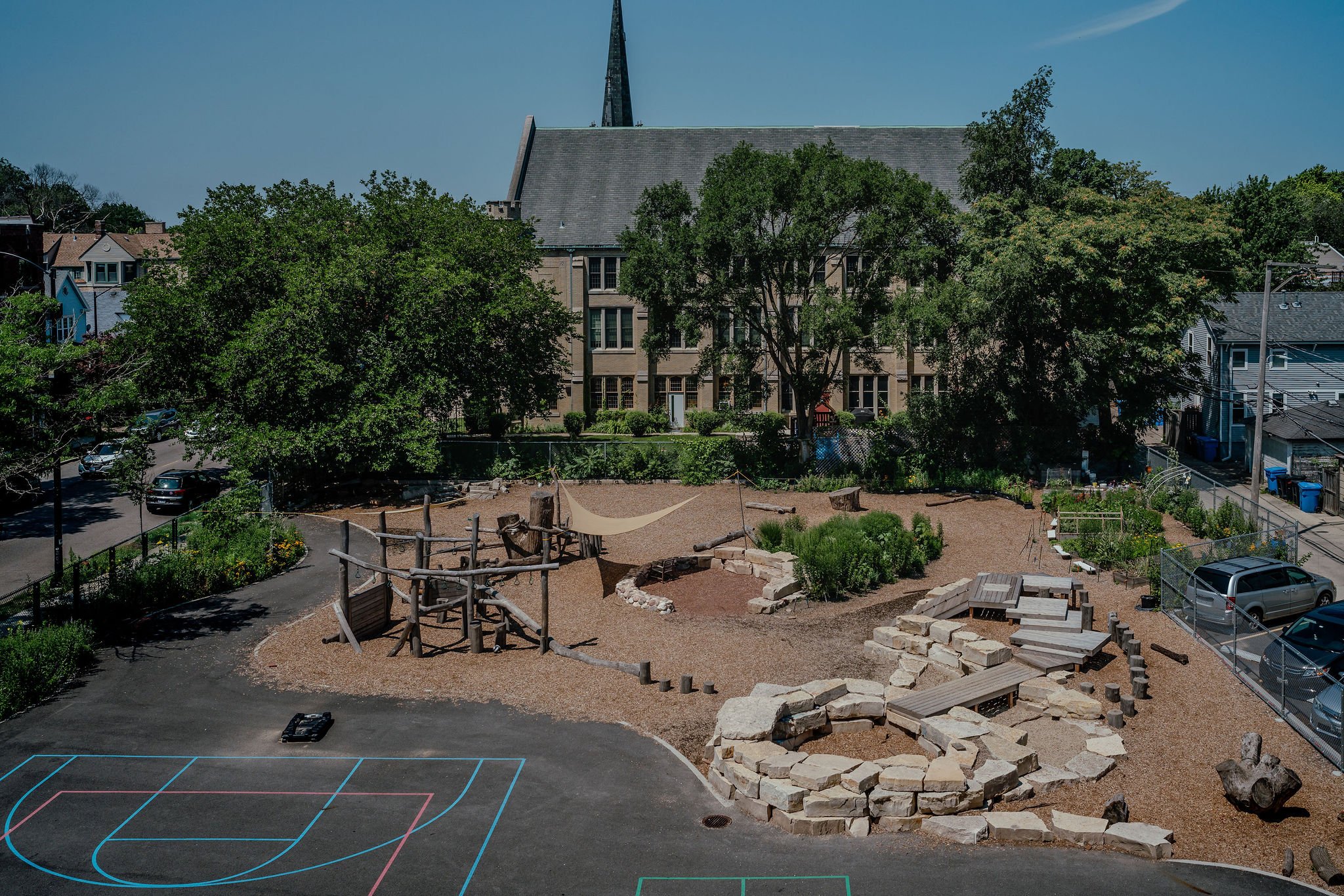
A global community
Our community members, students, and teachers come from dozens of countries all over the world, contributing to a rich cultural climate both inside and outside the classroom. Our calendar is filled with festivals, celebrations, and traditions from across the globe, so that we can all learn from and about each other.

languages spoken
Our faculty, staff, students, and community members represent an array of neighborhoods, cultures, and countries, and speak a number of different languages. These are just a few of the languages you’ll hear in the classroom, in the halls, on the playground, at festivals and events, and in the pick-up line.
Română
Polskie
عربى
Tagalog
татарлар
हिन्दी
English
עִברִית
Italiano
አማርኛ
Français
Español
русский
中国人
Deutsch
සිංහල
Bosanski
ܐܵܬ݂ܘܼܪܵܝܲܐ ܠܸܫܵܢܵܐ
Português
Every family is different…
shouldn’t your tuition be different, too?
Families contribute to their student’s education at the full-pay level or at their individualized tuition level. Every family has the opportunity to apply annually for a Family Individualized Tuition (FIT) amount. This variable tuition model is built to ensure that we can continue to welcome an ever-wider array of individuals from all over the city, the country, and the world, and grow our community in new and exciting ways.

Frequently asked questions
-
Sort of! The first Waldorf school was developed by Rudolf Steiner in 1919 for the children of the Waldorf-Astoria Cigarette Factory workers in Stuttgart. Consequently, the school came to be known as the “Waldorf” school. The Astor family, who owned the factory, later developed the Waldorf-Astoria hotel chain. The “Waldorf” in “Waldorf-Astoria” comes from the town of Walldorf in south-west Germany, where the Astor family originated.
-
Sort of! Waldorf Salads first originated in the Waldorf-Astoria Hotel in New York City, so the name of the salad also traces back to the Astor family, just like the “Waldorf” in Waldorf schools.
-
No, CWS is non-sectarian and not affiliated with any religion or spiritual practice. As a part of our cultural and historical curricula, we introduce students to religious beliefs, practices, and celebrations from all over the world.
-
Rudolf Steiner developed Waldorf education in Germany around the same time that Maria Montessori developed her own pedagogy in Italy. They were both considered progressive models of education created in response to mass industrialization, and, consequently, share some essential principles, but, in practice, are entirely distinct.
-
The Chicago Waldorf School is not an art school. Waldorf education, however, views creative and artistic expression as inherent to all subjects, giving students a number of ways to engage with material, while also nurturing social and emotional development.
-
Studies continue to show that exposure to media and technology at an early age can have a stifling effect on child development. For this reason, Waldorf schools do not rely on technology in the classroom. As students get older, particularly in Middle School and High School, technology is introduced as a vital resource for certain aspects of education. We make sure to introduce technology in a thoughtful and intentional way, actively engaging students in conversations about the ethical and pro-social responsibilities inherent in technological and internet usage.
-
As with all subjects, Waldorf takes an experiential approach to reading.
Pre-reading skills are developed in the Early Childhood by introducing children to oral stories and folk tales, growing their vocabulary and building their comprehension skills. There, they also develop fine motor skills through baking, preparing food, coloring, and painting. By the time they reach the first grade, they are prepared to begin direct instruction.
In the first grade, students are taught consonants and vowel names and sounds through an artistic approach of drawing, painting, movement, and speech, putting into practice the skills they developed in the Early Childhood. By the end of the year, they are reading and writing words and short sentences, and are prepared for more intensive reading and writing in the second grade.
-
Advanced Placement (AP) courses are a product sold by the College Board, a private non-profit organization. As a recent Forbes article states, "if students did not have AP classes available to them at their schools, [college] admissions officers will not expect to see AP courses or AP exam scores included in their applications. As such, these students’ applications will not be disadvantaged in any way by not including AP exams."
The courses we offer at CWHS are rigorous, honors-level courses designed to prepare you for college and beyond.
-
The short answer is: wherever they want! After a career of integrated learning with an emphasis on emotional development, social responsibility, and individual expression, our students repeatedly go on to receive precisely the college education they desire. Some recent acceptances include the University of Chicago, New York University, Northwestern University, Smith College, University of Wisconsin, Howard University, Oberlin College, Vassar College, School of the Art Institute of Chicago, and Berklee College of Music, among many more.
Of course, college isn’t for everyone! Some students decide to forego college in order to pursue other goals - like starting a nonprofit animal shelter, teaching English abroad, and founding their own business - and we support those students wholeheartedly, giving them the resources they need to get started on their path.
-
Grading methods vary slightly by class/grade and by project, but, in practice, grade school students receive individualized, written, evaluative narratives and a comprehensive rubric completed by their teachers. We do not rely on a traditional letter grading system for our records.
Additionally, students in Middle School will be tested every 4-5 weeks on their main morning lesson subject and will receive a percentage grade which can be computed into a standard letter grade, if needed. The CWS grade school (PreK-8th) does not participate in standardized testing.
High School students receive traditional letter grades, as well as written evaluations from their teachers every semester. The evaluations give a fuller picture of their achievements, their engagement with the work of the class and, as needed, evaluations indicate where a student needs support. We administer the PSAT/NMSQT to 11th graders to introduce them to digital test-taking. 11th and 12th graders take the ACT and/or SAT in the process of applying to colleges and universities.
-
Yes! The Chicago Waldorf School is a 501(c)(3) nonprofit organization, meaning, among other things, that donations to the school are tax-deductible.
in the heart of andersonville
drive
Street parking is available throughout the neighborhood.
cta (bus)
50 to Ashland/Foster
22 to Foster/Clark
cta (l)
Berwyn Red Line
metra
Ravenswood
Peterson/Ridge

